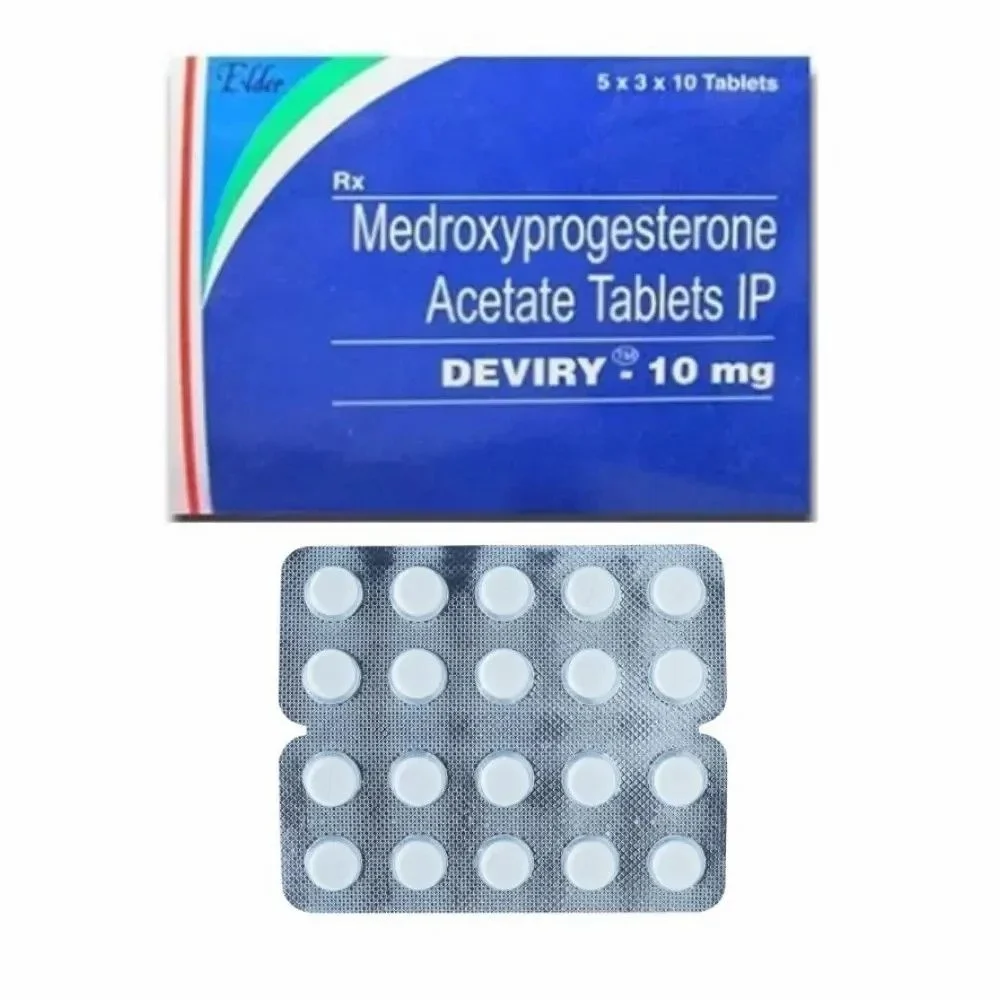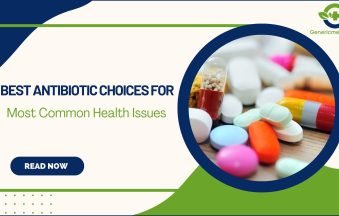Essential Medications During Pregnancy: What’s Safe & What’s Not?
📋 Pregnancy can be an exciting yet challenging time, especially when it comes to managing your health. One of the most pressing concerns for expectant mothers is understanding which medications are safe to take and which ones could potentially harm their growing baby. With conflicting advice from well-meaning friends and family, and a sea of information online, it’s easy to feel overwhelmed and uncertain.
🤔 Have you ever found yourself staring at your medicine cabinet, wondering if that headache pill or allergy medication is safe for your unborn child? You’re not alone. Many pregnant women grapple with the dilemma of balancing their own health needs with the safety of their baby. The good news is that there are clear guidelines and safe options available for managing common ailments during pregnancy.
In this comprehensive guide, we’ll explore the essential medications during pregnancy, shedding light on what’s safe and what’s not. From understanding medication safety to navigating prescriptions and managing chronic conditions, we’ll cover everything you need to know to make informed decisions about your health during this crucial time. Let’s dive in and demystify the world of pregnancy-safe medications!
Understanding Medication Safety During Pregnancy
A. Importance of consulting healthcare providers
When it comes to medication safety during pregnancy, consulting healthcare providers is paramount. Your doctor or midwife has the expertise to:
- Evaluate your specific health needs
- Assess potential risks to your developing baby
- Recommend safe alternatives when necessary
- Monitor your condition throughout pregnancy
Never start, stop, or change medications without professional guidance. This ensures the best possible outcomes for both you and your baby.
B. FDA pregnancy risk categories explained
The FDA categorizes medications based on their potential risks during pregnancy:
- Category A: Safe for use, with no known risks
- Category B: Generally safe, with no evidence of risk in humans
- Category C: Potential benefits may outweigh risks
- Category D: Positive evidence of risk, but benefits may outweigh risks
- Category X: Contraindicated in pregnancy due to known fetal risks
Understanding these categories helps you make informed decisions with your healthcare provider about medication use during pregnancy.
C. Balancing maternal health and fetal risks
Maintaining maternal health while minimizing fetal risks is a delicate balance. Consider these factors:
- Severity of the condition being treated
- Potential consequences of untreated conditions
- Available alternative treatments
- Timing of medication use during pregnancy
In some cases, the benefits of treating a maternal condition outweigh potential risks to the fetus. Your healthcare provider will help you weigh these factors to make the best decision for your unique situation.
Now that we’ve covered the basics of medication safety during pregnancy, let’s explore some common safe medications that pregnant women can use.
Common Safe Medications for Pregnant Women
Over-the-counter pain relievers
When it comes to managing pain during pregnancy, acetaminophen (Tylenol) is generally considered safe when used as directed. It can help alleviate common discomforts such as headaches, backaches, and mild fever. However, it’s crucial to avoid nonsteroidal anti-inflammatory drugs (NSAIDs) like ibuprofen and aspirin, as they may pose risks to fetal development.
Antacids and heartburn treatments
Heartburn is a common pregnancy complaint, and fortunately, several safe options are available:
- Calcium carbonate-based antacids (e.g., Tums, Rolaids)
- Magnesium hydroxide (Milk of Magnesia)
- Famotidine (Pepcid)
- Ranitidine (Zantac)
Always consult your healthcare provider before starting any new medication regimen.
Prenatal vitamins and supplements
Prenatal vitamins are essential for supporting fetal development and maternal health. Key components include:
- Folic acid
- Iron
- Calcium
- Vitamin D
- DHA (omega-3 fatty acid)
Your healthcare provider may recommend additional supplements based on your individual needs.
Safe cold and flu remedies
While it’s best to avoid medications when possible, some safe options for managing cold and flu symptoms include:
- Saline nasal sprays
- Acetaminophen for fever and pain relief
- Dextromethorphan for cough suppression
- Pseudoephedrine (after the first trimester) for nasal congestion
Remember to always consult your healthcare provider before taking any medication during pregnancy, even if it’s considered generally safe. They can provide personalized advice based on your specific health situation and stage of pregnancy.
Medications to Avoid While Pregnant
NSAIDs and their risks
Non-steroidal anti-inflammatory drugs (NSAIDs) are commonly used for pain relief and reducing inflammation. However, pregnant women should exercise caution when considering these medications. NSAIDs can pose significant risks to both the mother and the developing fetus, especially during the third trimester. Here are some key points to remember:
- Common NSAIDs to avoid:
- Ibuprofen (Advil, Motrin)
- Naproxen (Aleve)
- Aspirin (unless prescribed by a doctor)
- Potential risks of NSAIDs during pregnancy:
- Increased risk of miscarriage
- Delayed onset of labor
- Reduced amniotic fluid levels
- Possible heart defects in the baby
Certain antibiotics and their effects
While some antibiotics are safe during pregnancy, others can have harmful effects on the developing fetus. It’s crucial to consult with your healthcare provider before taking any antibiotics. Some antibiotics to avoid include:
- Tetracyclines: Can cause discoloration of the baby’s teeth and affect bone growth
- Sulfonamides: May increase the risk of jaundice in newborns
- Fluoroquinolones: Potential risk of joint and cartilage problems in the baby
Acne treatments to steer clear of
Many acne treatments contain ingredients that can be harmful during pregnancy. It’s essential to avoid:
- Retinoids (both oral and topical forms)
- Salicylic acid in high concentrations
- Benzoyl peroxide in high concentrations
Instead, opt for gentle, pregnancy-safe alternatives recommended by your dermatologist or obstetrician.
Herbal supplements and their potential dangers
While herbal supplements may seem natural and harmless, many can pose risks during pregnancy. Some herbs to avoid include:
- Black cohosh
- Dong quai
- Evening primrose oil
- Goldenseal
Always consult your healthcare provider before taking any herbal supplements during pregnancy, as their safety and efficacy are often not well-studied in pregnant women.
Now that we’ve covered medications to avoid, let’s explore how to manage chronic conditions during pregnancy while prioritizing the health of both mother and baby.
Managing Chronic Conditions During Pregnancy
Safe alternatives for depression and anxiety medications
Managing depression and anxiety during pregnancy requires careful consideration. While some medications pose risks, there are safe alternatives:
- Selective Serotonin Reuptake Inhibitors (SSRIs): Many SSRIs, such as sertraline and fluoxetine, are considered relatively safe during pregnancy.
- Cognitive Behavioral Therapy (CBT): This non-pharmacological approach can be highly effective for managing both depression and anxiety.
- Mindfulness and meditation: These practices can help reduce stress and anxiety without medication.
Asthma treatments compatible with pregnancy
Controlling asthma during pregnancy is crucial for both maternal and fetal health. Safe options include:
- Inhaled corticosteroids: These are the preferred long-term control medications during pregnancy.
- Short-acting beta-agonists: Albuterol is commonly used as a rescue inhaler and is considered safe.
- Leukotriene modifiers: Some, like montelukast, can be used if the benefits outweigh potential risks.
Diabetes management options
Proper glucose control is essential during pregnancy. Safe management strategies include:
- Insulin: This is the preferred treatment for gestational diabetes and pre-existing diabetes during pregnancy.
- Metformin: Often used for gestational diabetes, though insulin is typically the first choice.
- Blood glucose monitoring: Regular testing helps maintain optimal glucose levels.
Hypertension medications and pregnancy
Managing hypertension is critical to prevent complications. Safe options include:
- Methyldopa: This is often the first-line treatment for hypertension in pregnancy.
- Labetalol: A beta-blocker that’s considered safe and effective during pregnancy.
- Nifedipine: A calcium channel blocker that can be used if other options are ineffective.
With these safe alternatives and management strategies, pregnant women with chronic conditions can maintain their health while minimizing risks to their developing babies. It’s crucial to work closely with healthcare providers to tailor treatment plans to individual needs and monitor for any potential side effects throughout pregnancy.
Navigating Prescription Medications
Communicating with your healthcare team
When it comes to prescription medications during pregnancy, open and honest communication with your healthcare team is crucial. Schedule regular check-ups and discuss all medications you’re currently taking, including over-the-counter drugs and supplements. Be prepared to:
- Provide a complete list of your medications
- Share any concerns or side effects you’re experiencing
- Ask questions about potential risks and alternatives
Your healthcare provider can offer personalized advice based on your specific situation and medical history.
Understanding dosage adjustments
Pregnancy often necessitates changes in medication dosages due to physiological changes in your body. Your healthcare provider may need to:
- Increase or decrease dosages
- Adjust the frequency of medication intake
- Switch to a different form of the medication (e.g., from oral to topical)
It’s essential to follow these adjustments carefully and report any unusual effects promptly.
Risks of abruptly stopping medications
Suddenly discontinuing prescription medications can be dangerous for both you and your baby. Potential risks include:
- Worsening of underlying medical conditions
- Withdrawal symptoms
- Increased risk of pregnancy complications
Always consult your healthcare provider before making any changes to your medication regimen.
Alternatives to potentially harmful prescriptions
If your current medications pose risks during pregnancy, your healthcare team may suggest safer alternatives. These could include:
- Switching to a different class of medication
- Exploring non-pharmacological treatments
- Considering lifestyle modifications to manage symptoms
Remember, the goal is to balance your health needs with the safety of your developing baby. Your healthcare provider will work with you to find the most appropriate solution for your unique situation.
Special Considerations for Each Trimester
First trimester medication precautions
During the first trimester, extra caution is crucial when it comes to medication use. This period is critical for fetal development, and exposure to certain substances can have significant impacts. Here are key precautions to consider:
- Avoid over-the-counter medications without consulting your healthcare provider
- Be particularly cautious with medications known to cause birth defects
- Discuss any existing prescriptions with your doctor to assess their safety
Many medications that were safe before pregnancy may need to be reevaluated during this time. Your healthcare provider might suggest alternatives or adjustments to your current regimen.
Second trimester medication adjustments
As you enter the second trimester, some medication restrictions may be relaxed, but vigilance is still important. Consider these points:
- Some medications that were off-limits in the first trimester may now be safe to use
- Dosage adjustments might be necessary due to physiological changes in pregnancy
- Continue to consult your healthcare provider before starting any new medications
Third trimester medication considerations
In the final stretch of pregnancy, medication management requires ongoing attention. Key considerations include:
- Be aware of medications that may affect labor or the newborn
- Discuss pain management options for labor with your healthcare provider
- Prepare a list of your current medications for your delivery team
As you approach your due date, it’s crucial to review your medication plan with your healthcare provider. They can help ensure you’re prepared for a safe delivery and postpartum period. Remember, each pregnancy is unique, and what works for one woman may not be suitable for another.
Emergency Medications and Pregnancy
Safe options for severe pain management
When faced with severe pain during pregnancy, it’s crucial to prioritize both maternal comfort and fetal safety. Here are some safe options for managing intense pain:
- Acetaminophen (Tylenol): Generally considered safe throughout pregnancy when used as directed.
- Local anesthetics: For dental procedures or minor surgeries.
- Opioids: In limited cases, under strict medical supervision.
Always consult your healthcare provider before taking any pain medication, as dosages and safety profiles may vary depending on your specific situation and stage of pregnancy.
Addressing allergic reactions while pregnant
Allergic reactions can be concerning during pregnancy, but several safe treatment options are available:
- Antihistamines: Cetirizine and loratadine are typically considered safe.
- Nasal sprays: Saline or steroid-based sprays can provide relief for nasal congestion.
- Epinephrine: For severe allergic reactions, epinephrine auto-injectors are safe to use.
Medications for pregnancy-related complications
Certain complications may arise during pregnancy that require immediate medical attention. Some medications that may be used in these situations include:
- Magnesium sulfate: For preeclampsia or to prevent preterm labor.
- Betamethasone: To promote fetal lung development in case of threatened preterm delivery.
- Low-molecular-weight heparin: For managing blood clots or preventing complications in high-risk pregnancies.
Remember, these medications should only be administered under the guidance of a healthcare professional. They will carefully weigh the potential benefits against any risks to ensure the best outcome for both mother and baby.
In emergency situations, it’s crucial to inform medical personnel of your pregnancy status to ensure appropriate treatment. While the safety of the developing fetus is paramount, sometimes the benefits of certain medications outweigh the potential risks in critical situations.
Conclusion
Pregnancy brings numerous changes and challenges, including the need to carefully consider medication use. From over-the-counter pain relievers to prescription drugs for chronic conditions, it’s crucial to understand which medications are safe and which should be avoided during this critical time. Always consult with your healthcare provider before starting or stopping any medication while pregnant.
Remember, each pregnancy is unique, and what works for one woman may not be suitable for another. Stay informed, communicate openly with your healthcare team, and prioritize your health and the health of your developing baby. By taking a proactive approach to medication management during pregnancy, you can ensure the best possible outcomes for both you and your little one.





















Add comment